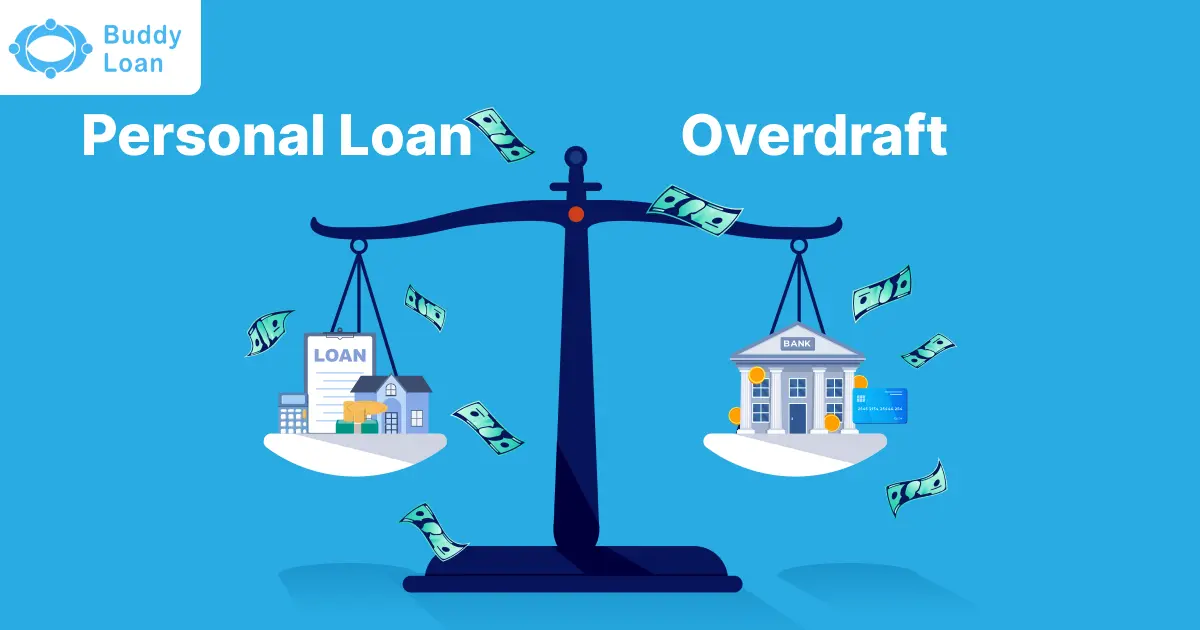Your credit score is one of the most important factors that lenders consider when approving a loan. Whether you’re applying for a personal loan, home loan, or car loan, your credit score indicates your creditworthiness. In simple terms, it tells the lender how likely you are to repay the borrowed money.
In this blog, we’ll cover everything you need to know about credit scores for loans, including the minimum CIBIL score needed and what to do if your score is low.
Credit Score
A credit score is a three-digit number that shows how good you are at handling borrowed money. It helps banks and lenders decide if they can trust you to repay loans on time. Think of it like a report card for your finances — the higher your score, the more likely you are to get approved for loans, credit cards, or other financial services with better terms. A low score means you might have trouble getting approved or could be charged higher interest rates.
| Credit Score Range | Creditworthiness |
| 750 – 900 | Excellent |
| 650 – 749 | Good |
| 550 – 649 | Fair |
| Below 550 | Poor |
Importance Of Credit Scores for Loans
Your credit score is crucial for lenders when deciding to approve your loan application. Here’s why:
- Approval Chances: A higher score increases the likelihood of loan approval.
- Interest Rates: Good scores can help you get loans at lower interest rates.
- Loan Amount: Higher scores may qualify you for higher loan amounts.
- Faster Processing: Good credit profiles often get quicker approvals.
Credit Score Ranges and What They Mean
Understanding credit score ranges is essential for managing your financial health. A credit score not only influences your ability to secure loans and credit but also affects the terms and interest rates you may receive.
| Credit Score Range | Loan Eligibility |
| 750 – 900 | Easy approval, low interest rates |
| 650 – 749 | Likely approval, moderate rates |
| 550 – 649 | Difficult approval, higher rates |
| 300 – 549 | Low chance of approval |
Understanding Credit Score and Loan Eligibility
A credit score is a three-digit number that shows how reliable you are in paying back borrowed money. Lenders use this score to decide if they should give you a loan and at what interest rate. Let’s break down the minimum credit score needed for different types of loans and how you can improve your chances.
Personal Loans
Minimum CIBIL Score: 700 or above
Why It Matters:
Personal loans are unsecured loans, meaning you don’t need to provide collateral. Because of this, lenders depend heavily on your credit score to decide if you are a risk. A score below 700 may lead to rejection or higher interest rates.
Tips to Improve Your Chances:
- Pay on Time: Always pay your credit card bills and EMIs on time.
- Keep Credit Usage Low: Avoid using more than 30% of your credit limit.
- Limit Applications: Applying for fewer loans or credit cards can lower your score.
- Check for Errors: Review your credit report for mistakes and fix them quickly.
Home Loans
Minimum CIBIL Score: 750 or above
Why It Matters:
Home loans involve large amounts and long repayment periods. Lenders prefer a high credit score to feel confident in giving you a loan. A higher score also helps you get a lower interest rate, saving you a lot of money.
Other Important Factors:
- Steady Income: Lenders check if you have a stable income to pay your loan on time.
- Debt-to-Income Ratio: This shows how much debt you have compared to your income. Lower is better.
- Down Payment: Paying a larger down payment can improve your chances of getting approved.
Business Loans
Minimum CIBIL Score: 700 or above
Why It Matters:
Business loans look at both your credit score and your business finances. A good score can improve your approval chances and get you better interest rates.
Lenders Also Consider:
- Business Financial Health: Your company’s profits, cash flow, and revenue.
- Business Plan: A clear plan shows lenders that your business can succeed.
- Collateral: Offering assets like property or equipment as security can help, especially if your score is low.
Travel Loans
Minimum CIBIL Score: 650 or above
Why It Matters:
Travel loans are smaller, but lenders still check your credit score to see if you are reliable. A good score can help you get a lower interest rate and faster approval.
Other Factors to Keep in Mind:
- Income Stability: Lenders want to make sure you have a steady job.
- Repayment Capacity: They will check if you can manage the loan along with your other expenses.
Other Factors Lenders Consider
While a good credit score is important for getting a loan, it’s not the only thing lenders look at. They also consider several other factors to decide if you’re eligible for a loan. Here are the key things lenders check to assess your financial health:
1. Income and Job Stability
- Income: Lenders want to know if you have a steady income to repay the loan. A consistent salary or regular business income makes you a more reliable borrower.
- Job Stability: How long you’ve been at your current job matters. A longer tenure with a stable employer shows you are financially secure.
2. Repayment Capacity
- Debt-to-Income Ratio (DTI): This ratio shows how much of your income goes toward paying existing debts. A lower DTI means you can handle more debt comfortably.
- Repayment History: Regular and timely payments on credit cards, loans, and EMIs show you’re responsible with money.
3. Existing Debts
- Outstanding Loans: Lenders check if you have many ongoing loans. If you owe too much, it can reduce your chances of getting new loans.
- Credit Utilization Ratio: This shows how much credit you’re using compared to your total limit. Lower credit usage is better for loan approval.
4. Other Important Factors
- Collateral: Offering assets like property or gold as security can improve your chances of getting approved, especially if your credit score is low.
- Relationship with the Lender: Having a long-standing account or relationship with the bank can work in your favor.
- Purpose of the Loan: The reason for the loan matters. Loans for education, home improvement, or business growth are seen as more responsible than loans for luxury spending.
Simple Tips to Improve Your Credit Score
- Pay bills on time every month.
- Use less credit, aim for under 30% of your credit limit.
- Check your credit report regularly for errors.
- Don’t apply for too many loans or credit cards at once.
By maintaining a good credit score and managing your finances wisely, you can increase your chances of getting loans with better terms.
Steps to Get a Loan with a Low CIBIL Score
A low CIBIL score can make getting a loan more challenging, but it doesn’t mean you’re out of options. Here are some strategies to improve your chances of getting a loan approved:
1. Apply for Secured Loans
- Use Your Assets: Offer collateral such as gold, property, or fixed deposits to secure the loan. This reduces the lender’s risk.
- Lower Interest Rates: Secured loans often have lower interest rates than unsecured ones.
2. Apply with a Co-Applicant
- Shared Responsibility: A co-applicant (such as a family member) with a good credit score can increase your chances of loan approval.
- Joint Liability: Both you and the co-applicant are responsible for repaying the loan.
3. Request a Smaller Loan Amount
- Easier Approval: Smaller loan amounts are easier to get approved, even with a low credit score.
- Build Trust: Successfully repaying smaller loans helps improve your credit history over time.
4. Improve Your Credit Score
- Pay on Time: Always pay your credit card bills and EMIs before the due date.
- Reduce Credit Usage: Try to use less than 30% of your credit limit to show responsible borrowing.
- Fix Errors: Check your credit report regularly and correct any mistakes you find.
- Avoid Multiple Applications: Limit new credit card or loan applications to avoid hurting your credit score.
5. Explore Alternative Lenders
- NBFCs (Non-Banking Financial Companies): NBFCs are sometimes more flexible than banks with credit score requirements.
- Peer-to-Peer Lending Platforms: Services like Faircent and LenDenClub connect borrowers directly with lenders and may offer more flexible terms.
Factors Affecting Your Credit Score
1. Payment History:- Timely repayments boost your score. Missed or late payments lower it.
2. Credit Utilization Ratio:- Keep your credit usage below 30% of your credit limit.
3. Length of Credit History:- The longer you’ve had credit accounts, the better it is for your score.
4. Credit Mix:- A mix of credit cards and loans (secured and unsecured) can improve your score.
5. New Credit Inquiries:- Too many applications in a short period can negatively impact your score.
Importance of Maintaining a Good Credit Score
1. Quick Loan Approvals: Increases your chances of getting approved.
2. Lower Interest Rates: Save money on interest payments.
3. Higher Loan Limits: Allows you to borrow larger amounts.
4. Financial Freedom: Easier access to credit when needed.
Conclusion
Your credit score is one of the most important factors in loan approval. A high score can get you quick approvals and better interest rates, while a low score can lead to rejections or expensive loans. Whether you need a personal loan, home loan, business loan, or travel loan, maintaining a good credit score is essential.
Take steps to improve your credit score by paying bills on time, keeping credit utilization low, and regularly checking your credit report. Start your journey towards better financial health today!
Download Personal Loan App
Get a loan instantly! Best Personal Loan App for your needs!!
Looking for an instant loan? Buddy Loan helps you get an instant loan from the best-verified lenders. Download the Buddy Loan App from the Play Store or App Store and apply for a loan now!
Having any queries? Do reach us at info@buddyloan.com
Frequently Asked Question
Q. What credit score is needed to qualify for a personal loan?
A. A credit score of 750 or above is typically required for faster approval and better loan terms.
Q. Can I get a loan with a low credit score?
A. Yes, but lenders may impose higher interest rates and stricter eligibility conditions for scores below 750.
Q. Does a high credit score guarantee loan approval?
A. No, other factors like income, existing debts, and employment stability are also evaluated.
Q. How does my credit score affect loan interest rates?
A. Higher credit scores can secure lower interest rates, while lower scores might lead to higher rates.
Q. Will applying for a loan impact my credit score?
A. Yes, multiple loan applications within a short period can lower your score due to hard inquiries.
Q. What is the minimum credit score for a mortgage loan?
A. A score of 700–750 is generally required for mortgage loans, with better terms for higher scores.
Q. Do lenders consider factors beyond just credit scores?
A. Yes, factors like income, employment history, and debt-to-income ratio are crucial.
Q. How can I improve my credit score for a loan?
A. Regularly pay bills on time, reduce credit utilization, and avoid applying for multiple loans simultaneously.
Q. Is there a credit score range for auto loans?
A. Credit score of 700 and above is ideal for competitive rates on auto loans, though options exist for lower scores at higher rates.




